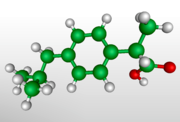Many children with asthma avoid taking aspirin because this drug can cause a worsening of their asthma. Aspirin is in the family of drugs called nonsteroidal anti-inflammatory drugs (NSAIDs). Many physicians recommend that asthmatic children avoid all NSAIDs, assuming that if one NSAID causes this problem, then others will also.
Ibuprofen (Motrin, Advil, Nuprin, etc.} is a popular NSAID that's often given to children when they have a fever. Many physicians tell parents of asthmatic children to avoid ibuprofen, reasoning that, since it's a NSAID, it may cause a worsening of their asthma. These doctors recommend using acetaminophen (Tylenol, Panadol, etc.), a non-NSAID that helps with fever and pain.
Doctors at the Boston University School of Medicine decided to test this hypothesis. They looked at the records of almost 84,000 children who received at least one dose of either acetaminophen or ibuprofen. Of these, 1879 met their definition of having asthma. There were nearly an equal number of asthmatic children with asthma symptoms who received acetaminophen, ibuprofen (5 milligrams per kilogram of weight), or ibuprofen (10 milligrams per kilogram).
They expected to find that the children who received the acetaminophen had fewer asthma problems than those treated with ibuprofen. But that's not what happened. No matter which medicine was received, the rate of hospitalizations for asthma complications was the same. Surprisingly, the children receiving the ibuprofen had half the risk of needing outpatient treatment for their asthma as those receiving acetaminophen.
The author's conclude that, contrary to what they expected, ibuprofen is safe treatment for asthmatic children and may actually be safer than acetaminophen.
Pediatrics, 2/02
COPYRIGHT 2002 Pediatrics for Parents, Inc.
COPYRIGHT 2002 Gale Group



